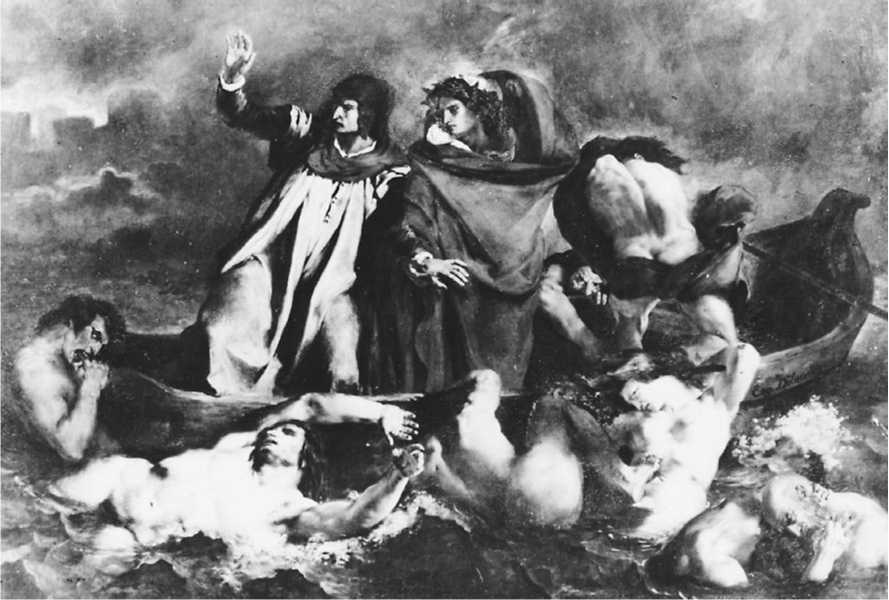Dante studied at a number of great universities in Western Europe, and his reaction to the death of Beatrice brought on an intensive reading of ancient and early medieval philosophers. In 1289, however, he left school to enlist in the Florentine army, and fought in the Battle of Cam-paldino that year.
Italy at that time was torn by a church-state conflict that pitted the Guelphs (GWELFZ), supporters of the Roman Catholic Church, against the Ghibellines (GIB-uh-leenz), who backed the Holy Roman emperor. In Florence, the political division was even more complicated due to a split between the Black Guelphs and the White Guelphs. Dante sided with the White Guelphs, who took a less hard-line approach toward the Ghibellines than the Black Guelphs did; but the pope, leader of the Catholic Church, put his support behind the Black Guelphs.

This painting by Eugene Delacroix (de-la-KWAH; 1798-1863) shows the Roman poet Virgil leading Dante through Hell and Purgatory in Dante's Divine Comedy. Reproduced by permission of the Corbis Corporation.
In the years between 1295 and 1301, Dante became intensely involved in politics and held a number of public offices. The Blacks staged a coup (KOO), or sudden takeover, in Florence in 1301, and forced all Whites to leave the city. Among those banished was Dante, who was stripped of all his possessions and forbidden from re-entering the city the following year. He would spend the remainder of his life wandering throughout Italy, living in a variety of cities.




 World History
World History









